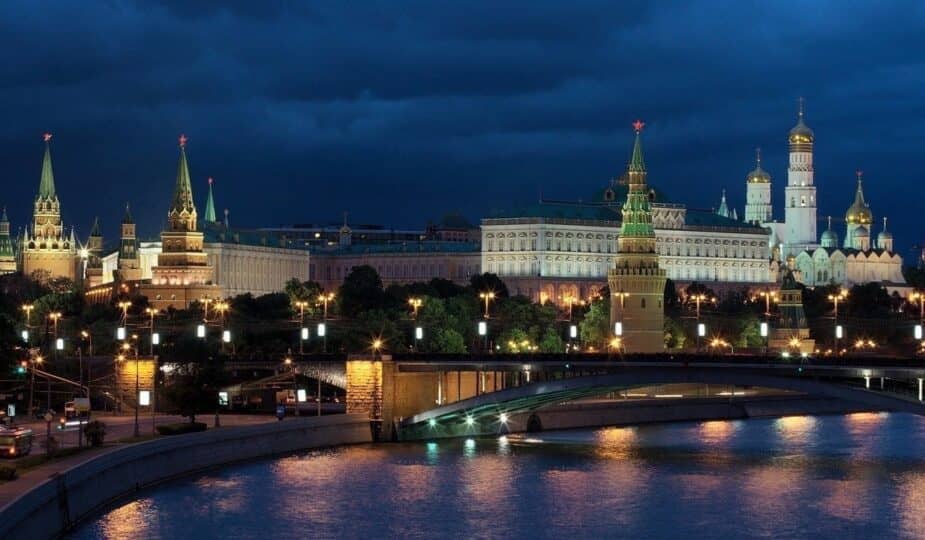Moscow, Russia
 2 Facebook x.com Reddit
2 Facebook x.com Reddit
The Russian Federal Antimonopoly Service asked Apple why Russian users cannot access all banking and payment services. although seemingly ignoring how banks in the country were sanctioned due to the war in Ukraine.
On Thursday, the FAS asked Apple to explain why banks operating in Russia, as well as payment services, cannot take full advantage of applications on the iPhone. Unlike much of the rest of the world, Russian banking services are strictly limited in how they function on iOS.
While the letter from the Russian Federal Antimonopoly Service (FAS) to Apple, reported by Reuters, appears to be a reasonable request for information from the outset, it ignores the international implications of the Russian-Ukrainian conflict.
The FAS complaint states that most Russian banks were removed from the App Store. Moreover, Apple does not allow users to install applications on iPhone from anywhere other than the App Store in Russia.
With both of these restrictions in place, banks simply cannot allow customers to install apps on iPhones as normal.
“The company’s actions contain signs of violation of antimonopoly legislation,” the FAS said in a statement. “The service sent a letter to the company about the need to present to the agency a detailed, motivated position on this issue.”
Excess of sanctions
The problem of the appearance of Russian banking applications in the App Store is actually is not actually under Apple's control.
Because of Russia's war against Ukraine, the US, UK and European Union have imposed sanctions against businesses in Russia, including large banks. Many of these sanctions began in February 2023, with more added over time.
Banks were blocked from accessing SWIFT, a messaging service that allowed communications between financial institutions to facilitate the transfer of assets, and a broader ban was introduced affecting cross-border transactions in general.
Since sanctions prevent US companies like Apple from working directly with banks in Russia, banking apps have been removed from the App Store as Apple makes every effort to comply with international laws.
This ban has not stopped banks from trying to serve customers through the App Store, with some creating Trojan apps posing as something else to interfere with the App Store's verification process.
Other than violating sanctions, there is nothing else Apple can do to allow apps to exist in the App Store.
Geography Lesson
The other part, preventing alternative ways to install applications, is something that is being worked on Apple has some control.
Europe's implementation of the Digital Markets Act forced Apple to allow third-party app stores to exist alongside the App Store in Europe.
It looks like the Russian regulator wants to know why this doesn't apply to Russian users at all. Let's start with the fact that the Digital Markets Law affects members of the European Union, and Russia does not apply to them.
While it is likely for Russia to pass laws forcing third-party app stores to exist in the country in the same way that the DMA does in Europe, sanctions are once again becoming an issue.
Since Apple has introduced rules, policies and fees affecting sideloading and third-party app markets on iPhone, this means there could potentially be financial transactions to install apps that are again prohibited by sanctions.
Apple could cancel these transactions, but then it would have to do the same in Europe for its storefronts. It's also likely that protests against Apple's App Store fees will get even worse, which could jeopardize a significant source of the company's revenue.
Willful ignorance
Two problems standing in the way of Russian banking applications are very easy to understand: an almost absurd level . However, despite the fact that this move by the regulator seems stupid in the face of obvious reasons, it may be useful for Russia to achieve its goal.
By asking Apple for formal reasons, the regulator could more directly point to problems hampering the use of apps on the App Store, as well as Apple's reluctance to allow sideloading of apps or alternative app stores in the country. .
Given the company's official reasons, the government will have more grounds to pass a law that obliges Apple to somehow allow the opening of third-party stores in Russia.
The request may also become a pretext for allowing the FAS to impose fines on Apple for various monopolistic actions. In 2021, the FAS fined Apple $12.12 million for alleged antitrust behavior, and in 2022, $17.4 million.
Follow AppleInsider on Google News.










